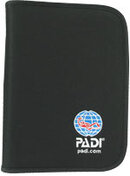RIteen
Contributor
Being a science-y type guy, as I was thinking about dive logs and what kind of book I will probably want to get for dive logs (I intend to go with a lab book/log book, hard cover, book bound so it lasts) I began thinking about what information would be interesting to collect. Then I began naturally thinking about actual references. One of the things I was thinking about was soil samples for particular dive sites. I am one of those people who cannot do something without a goal, even a small one!
One of the logged pieces of information is generally the bottom type. Naturally the words that describe such are words like : Rocky, Sandy, Dirty... But as anyone who has ever gardened knows, different soil behaves differently; each type of soil has a different makeup, be it a fine powder dirt or a composition of pebbles and sand.
I was wondering if anyone has ever considered soil sampling? The best Pop Culture reference I can think of would be that which was being done in "Saving Pvt. Ryan"... A small tin with some soil. Granted such would have to be dried out before storage, and the tin would have to be vented probably, due to the possible expansion of gasses, as to not blow up the soil on accent!
One of the logged pieces of information is generally the bottom type. Naturally the words that describe such are words like : Rocky, Sandy, Dirty... But as anyone who has ever gardened knows, different soil behaves differently; each type of soil has a different makeup, be it a fine powder dirt or a composition of pebbles and sand.
I was wondering if anyone has ever considered soil sampling? The best Pop Culture reference I can think of would be that which was being done in "Saving Pvt. Ryan"... A small tin with some soil. Granted such would have to be dried out before storage, and the tin would have to be vented probably, due to the possible expansion of gasses, as to not blow up the soil on accent!





